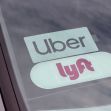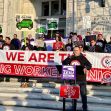The modern gig economy has given rise to a number of complications. Over the last few years, Rideshare drivers for Uber and Lyft and food delivery drivers for companies like Doordash and Grubhub have been locked in a battle over employee rights, centered on whether those workers should be considered employees at all. A recent decision from the Northern District of California dealt a victory to companies seeking to limit the scope of employees in order to evade certain wage laws and other worker rights.
The case titled Lawson v. Grubhub concerns a Grubhub driver who was denied reimbursements for business expenses, such as the use of his vehicle and cell phone. Under California law, employers must reimburse employees for such expenses, but independent contractors are not so protected. The case hinges primarily on whether the plaintiff was properly classified as an independent contractor.
Per recent amendments to California’s labor laws, as of 2020, the so-called “ABC test” is used to decide whether a worker is an employee or an independent contractor for the purposes of state labor laws. As explained by the Supreme Court of California in Dynamex and codified at Cal. Lab. Code § 2775, in order to be classified as an independent contractor, the worker must meet three prongs:
- The worker is free from the employer’s control or direction in performing their work;
- The work takes place outside the usual course of the company’s business, and off-site from the business; and
- The worker is customarily engaged in an independent trade, occupation, profession, or business of the same type as that involved in the work performed.
If a worker does not meet all three criteria, they are an employee, regardless of what the employer says or whether the employee agrees.
Lawson v. Grubhub, however, involves a plaintiff who worked for Grubhub before the recent amendments to the law. According to the district court, Dynamex applied the ABC test to claims arising from a “wage order” issued by the Industrial Welfare Commission. As explained by the district court, the Ninth Circuit Court of Appeals recently held that Dynamex was specifically limited to claims arising from a wage order, rather than all California labor law claims. The plaintiff’s claims in Lawson are based on Section 2802 of the Labor Code, which is not based on a wage order.
Instead of the ABC test, the more lax Borello test applies, deriving from a 1989 California Supreme Court case. The Borello test involves applying a host of factors in determining whether a worker is an employee. Relevant factors include whether the employer exercises control over the employee, whether the service requires a special skill, the worker’s opportunity for profit or loss depending on managerial skill, the length of time for which the services will be performed, and whether the work is a regular or integral part of the company’s business. The court will conduct a holistic review of all relevant factors. Unlike the ABC test, the Borello test does not set a hard and fast rule requiring the worker to meet specific conditions to be deemed an independent contractor.
In Lawson, the Northern District of California denied the plaintiff’s motion for summary judgment, which was based on an application of the ABC test. Presumably, the case will continue based on whether the plaintiff can prove his status as an employee under the Borello test. Unless a California state court steps in to address the issue, the federal court’s reasoning is likely to control. California gig workers with claims arising prior to 2020 will have a tougher time proving that they should be classified as employees for the purpose of California’s labor laws, outside of certain limited exceptions.






